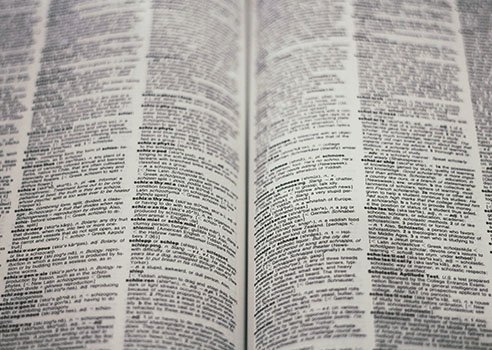Word count: 328 words
Reading time: Just over 1 minute
This is my weekly installment of “writing about writing,” in which I scan the world to find websites, books and articles to help writers. Today, I look at a piece about dictionaries.
I once interviewed a man who owned hundreds of dictionaries. He collected them, like stamps. He also taught speed-reading, but that’s another story. His obsession with dictionaries is not one I share, although I own at least a dozen of them (if you include the ones in French and Spanish.)
But I am interested in reading about dictionaries and a recent Opinionator piece from the New York Times grabbed my attention. Written by David Skinner, a member of the usage panel for the American Heritage Dictionary and a contributor to The Weekly Standard, Skinner offers his own reflections on the role of a dictionary.
He notes several points he thinks are important and I agree with both of them. The first is that even unabridged dictionaries are, in fact, abridged. This is a question of necessity. There are too many words even for the 20-volume Oxford. But the second, and more interesting point is this: “The committed writer should be loath to substitute the lexicographer’s (no doubt well-informed but hardly infallible) sense of a word for his own,” he argues. “Not that you get to choose, according to your own whims, what words actually mean, but there is always much more to know about a word than what a dictionary can tell you.”
I agree with Skinner wholeheartedly. Language needs to be at least a little bit flexible, like a spatula or a really good financial-plan. There are still rules that must be observed, of course, but around the edges we need a little room to bend.
I was intrigued enough by Skinner’s writing that I looked up one of his articles in the Weekly Standard and found this marvellous paean to parenting. If you’re not interested in dictionaries, read this one and enjoy!


